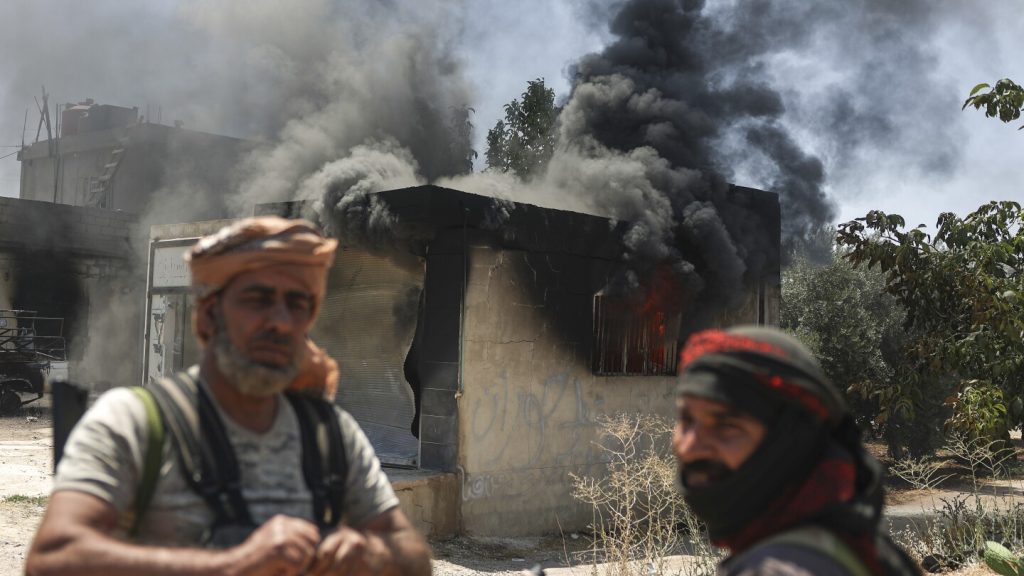MAZRAA, Syria (AP) — Syrian government forces are set to re-enter a southern region after renewed fighting between Druze armed groups and Bedouin clans left tens of thousands displaced, exacerbating the ongoing humanitarian crisis.
Previously, government forces had retreated from Sweida province following a ceasefire announced Wednesday, which temporarily halted some of the violence. However, fighting persisted, prompting officials to negotiate with Druze factions for an agreement that would allow the government to restore order and safeguard state institutions.
Hours later, Syria’s interim President Ahmad al-Sharaa stated that a “specialized force” would be deployed to tackle the clashes and resolve the situation on the ground, emphasizing that the safety of civilians is a “national duty.”
Escalating Violence
The conflict erupted on Sunday when Druze militias clashed with local Sunni Bedouin tribes. Government forces intervened but ended up supporting the Bedouins against the Druze. In the ensuing chaos, hundreds were killed, with accusations of execution of Druze civilians by government-affiliated fighters.
Israel conducted numerous airstrikes on government forces to protect the Druze community, which is significant within Israel itself. A mediated truce by the U.S., Turkey, and Arab nations was reached on Wednesday, stipulating that Druze factions would maintain order in Sweida as government forces withdrew.
Continued Displacement
Despite the ceasefire, fighting reignited late Thursday, leading to further displacement as Druze militias targeted Bedouin communities. Over 1,000 families were reported displaced due to the conflict, with essential services in Sweida collapsing and aid deliveries severely disrupted.
A Broader Conflict
Supporters from various regions joined the fighting, indicating that the conflict is spiraling. Reports indicated Bedouin groups accusing Druze leaders of oppression, with one leader vowing to not return home until their adversaries are defeated.
Calls for Unity and Resolution
In Israel, the Druze community called for protective measures, while regional leaders rejected any Israeli intervention. Lebanese Druze leader Sheikh Sami Abi al-Muna urged adherence to the ceasefire and advocated for national dialogue to resolve community tensions. Meanwhile, Lebanese Druze leader Walid Joumblatt called for an investigative committee to address violations by both sides in Syria.



